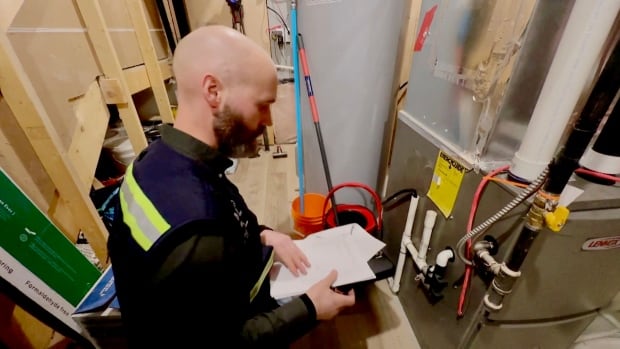
01 Feb Canada’s Greener Homes program is ending. Thousands of layoffs could follow
As the federal government’s popular Canada Greener Homes grant program comes to a close, the energy audit industry could crumble with businesses across the country warning of mass layoffs in the months ahead.
The federal government has signalled the end of the program, which provides up to $5,000 toward energy efficiency upgrades such as insulation, windows and heat pumps. New applications are expected to close by the end of March, but an official timeline is unknown.
In the meantime, business is temporarily booming for companies across the country who conduct the required home energy audits, as homeowners try to secure the grant funding before it dries up.
The surge in business is why Stephen Farrell cancelled all vacations for his staff at VerdaTech Energy Management. Currently, the company completes about 600 assessments a month in Alberta and British Columbia, although he predicts that will plunge to one or two per month once the federal program ends. The company also operates in Ontario.
“We’ve just increased the number of energy advisers across Canada dramatically. Millions and millions and millions of dollars was spent training new energy advisors,” he said. “I would suggest we can lose about 70 per cent of them. They’ll go out of the industry.”
“There’s going to be a massive fallout,” he added.

His advice to customers is to register for the program and have the initial assessment completed. Still, it’s difficult to provide advice to clients or his own staff, since Farrell said there is no clear timeline from Natural Resources Canada (NRCan), the department which administers the program.
“We have asked and we continue to ask for clarity,” Farrell said. “Please communicate with service organizations clearly in writing what is going on?”
Adding to the confusion is a temporary halt to new applications in Ontario effective Jan. 19 in order to “reconcile all current applicant files.”
Popular program
The grant program was supposed to last seven years, but it has proven so popular that the money is being used up at a faster rate than expected.
The federal grant helped knock $5,000 off the price of installing rooftop solar panels on Nicolas Gautier’s Calgary home. He’s also taking advantage of a related federal program providing an interest-free loan.
“It was sort of a no-brainer for us,” said Gautier of the savings.

The Greener Homes program came into effect on Dec. 1, 2020, with an end date of March 31, 2027, although it always came with a caveat that applications would be accepted until the money is allocated.
In total, the program is worth $2.6 billion including up to 700,000 grants of up to $5,000 and funding for the recruitment and training of energy advisors. “The Canada Greener Homes Initiative will help homeowners save money, create new jobs across Canada for energy advisors and fight climate change,” NRCan said on its website.
The program requires a homeowner to have an energy audit before and after upgrades are made to the residence.
Industry officials describe how the program was designed, in part, to increase the number of trained energy assessors across the country. These workers will be especially crucial in 2025, when proposed changes to the building code could take effect, potentially requiring energy audits on new homes to meet building performance standards.
Job cuts expected
However, if the Canada Greener Homes grant ends in the next few months, industry officials warn of a mass exodus of assessors.
“There’s literally thousands of people whose jobs are on the line,” said Rachael Murphy, co-owner of Energy Werx Alberta, who estimates 98 per cent of her business is tied to the Canada Greener Homes grant. Statistics Canada does not explicitly track the number of people who work as energy assessors.
Interested homeowners should register quickly and complete their first energy assessment, advises Stephen Farrell with VerdaTech Energy Management.
Becoming an energy assessor can take between three and six months for training and writing exams, said Murphy, adding that the job requires about $10,000 worth of equipment. The abrupt end to the program is like pulling the rug out from under people who joined the profession to have a stable career, she said.
“There’s no way we’re going to have the amount of business for the staff that we have now if this program ends, so it’s incredibly concerning,” Murphy added.
New applications still viable, official says
NRCan declined an interview request. In a statement, a department spokesperson said the program will accept new applications until all currently available funds are awarded, and Canadians who have already started an application will remain eligible for assistance.
The potential job losses extend to other industries providing the energy upgrades such as window installers, HVAC companies and solar panel providers.
“The last thing we want to do is lay people off, but that’s an inevitable conversation,” said Gursh Bal, the solar energy company’s co-CEO. “2024 is going to be a rough year.”
He too is urging the federal government to provide a clear answer on the fate of the grant funding program, so there is some level of certainty on what happens next instead of relying on rumours and hearsay.

